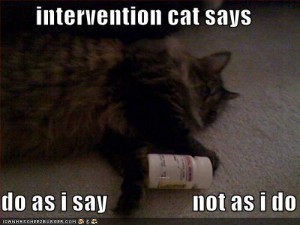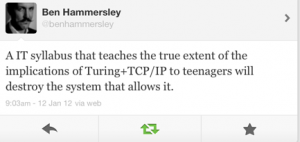Is the UK Government creating more Ed Snowdens?
 Bradley Manning solemnly swore to “support and defend the Constitution of the United States against all enemies, foreign and domestic”
Bradley Manning solemnly swore to “support and defend the Constitution of the United States against all enemies, foreign and domestic”
It doesn’t matter which country it is, the State expects the loyalty of citizens. This is most clear in the pledges that new citizens are required to recite:
US: “I pledge allegiance to the Flag of the United States of America, … , with liberty and justice for all.”
UK: “I will give my loyalty to the United Kingdom and respect its rights and freedoms. I will uphold its democratic values. I will observe its laws faithfully and fulfil my duties and obligations as a British citizen.”
Society is best served when words mean something.
In both citizenship and education, there is often a fundamental gap between the system’s goals, and the implementation. The UK Government’s education reforms aim to inspire a similar sense of patriotism based on the ideals he espouses.
Do as I say, not as I do.

Education minister, Michael Gove, promises “a clear narrative which encompasses British and world his
tory, with space for study of the heroes and heroines whose example is truly inspirational” (BBC). What could possibly go wrong?
Where the programmes and actions of an institution fall short of publicly stated aims and actions, individuals involved have always had the ability to speak. And when such cases are the most egregious, they always have even at personal cost.
Individuals can now be heard much more easily when speaking about failings, especially in areas the institution is incapable considering.
As politicians push ever harder for pledges and affirmations, maybe they should consider what happens when people actually believe what they pledge. Does everyone in GCHQ believe in upholding the democratic values of the UK? What would happen if everyone there believed they were obligated to do so?
American examples are easier to find, but I wonder what would happen if NSA/GCHQ/et al staff really believed in speaking honestly on decisions and process, and speaking out where necessary. Or, at least, if decision makers really believed that someone might. Again.
 Disruptive Proactivity
Disruptive Proactivity